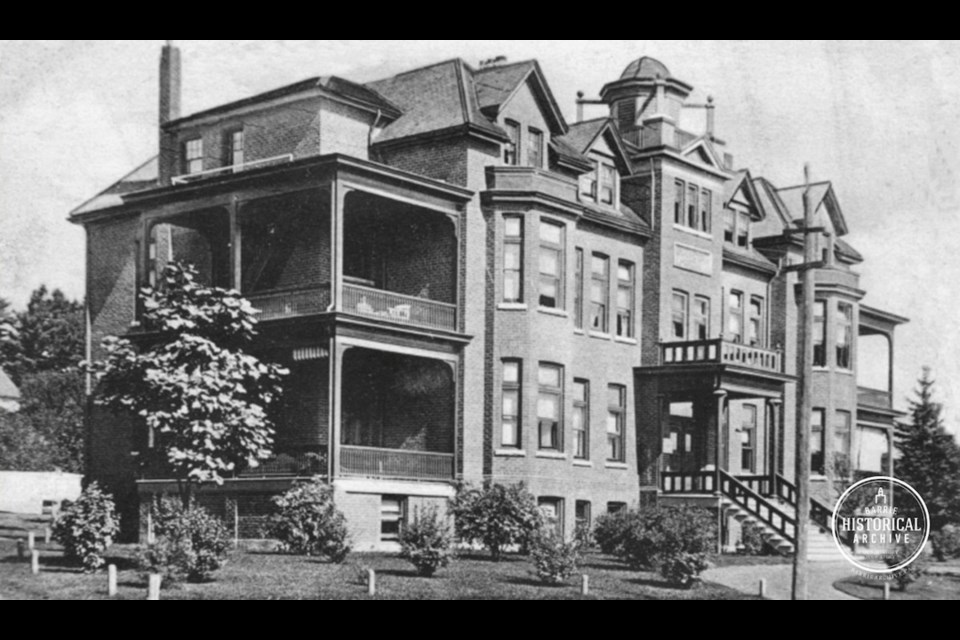Sydney Williams fancied himself an inventor of sorts. He had been developing a burglar-proof lock for some time, a device he valued at $1 million, and was rather concerned that others might be eager to steal his idea and profit from it themselves. But this wasn’t the only thing that Williams was working on. He was very excited about solar power and how it might one day allow people to travel to Mars. He could also envision a flying boat that could travel through air or water at 1,000 miles per hour.
Was Sydney Williams a celebrated local genius? Not exactly. This was 1923, and his now nearly possible ideas were so far into the future that he was stamped as insane by four doctors.
Williams had done some time in the Barrie Jail around 1920 for shop breaking. This time, he had been picked up north of Barrie for letting himself into vacant cottages. Upon his arrest, Williams was found in possession of a ring of 25 keys, all seemingly made by him. The police were fascinated and said that there was likely no lock out there that Williams couldn’t open with his keys and added that he appeared to be some kind of mechanical genius.
In another much-followed trial, there was no actual crime committed and local law enforcement was not interested in any way. It was the family of the person in question who pursued a finding of insanity in a court case.
Eighty-four-year-old Michael Fraser was the last survivor of a family of seven brothers in 1909 when he met 30-year-old Hannah Robertson and promptly married her. This turn of events greatly concerned his cousin, Catherine McCormick, his next of kin and presumed heir. She was determined to show that Fraser was not of sound mind and that the marriage should be voided.
In 1910, the matter was brought before the court in Barrie. Mr. A.E.H. Creswicke, counsel for Mrs. McCormack, presented evidence that Fraser sometimes took a few drinks, and that four of his brothers had died in an asylum. He hoped to show that Fraser was insane too, but the judge disagreed with that assertion.
Counsel further added that, even at the moment of the wedding ceremony, old Mr. Fraser was displaying signs of insanity. His hair had been untidy, he appeared in shirtsleeves and looked generally unkempt. The judge just smiled and quipped that the only person with a right to complain about that would be the bride. Case dismissed!
Indeed, the question of who was insane, who was not and what should be done with them was widely debated years ago. Mental defects of any kind were greatly feared, caused embarrassment to families and were hidden as much as possible.
It was in that climate of intolerance that Forbes Godfrey, M.P.P. for York West introduced an amendment to the Marriage Act in the Ontario Legislature in 1912 that sought to impose a penalty of $5 on any clergyman or issuer of licences “who was found guilty of celebrating the marriage of any person or persons who were shown to be idiotic, epileptic or imbecile.”
Change in attitude was a long time in coming, and hadn’t arrived locally at all by 1928, as the report by the Grand Jury concerning their visit to government institutions, such as the jail, showed. A paragraph in a piece in the Northern Advance of Oct. 18 started out on an almost hopeful note.
“We recommend very strongly that the practice of sending feeble minded, epileptic, insane to this institution be discontinued, as it appears to us to be very wrong to house these people with the rest of the inmates.”
Unfortunately, there was a second sentence. “There is no doubt that it has a depressing effect on those that are mentally sound.”
Each week, the Barrie Historical Archive provides BarrieToday readers with a glimpse of the city’s past. This unique column features photos and stories from years gone by and is sure to appeal to the historian in each of us.



